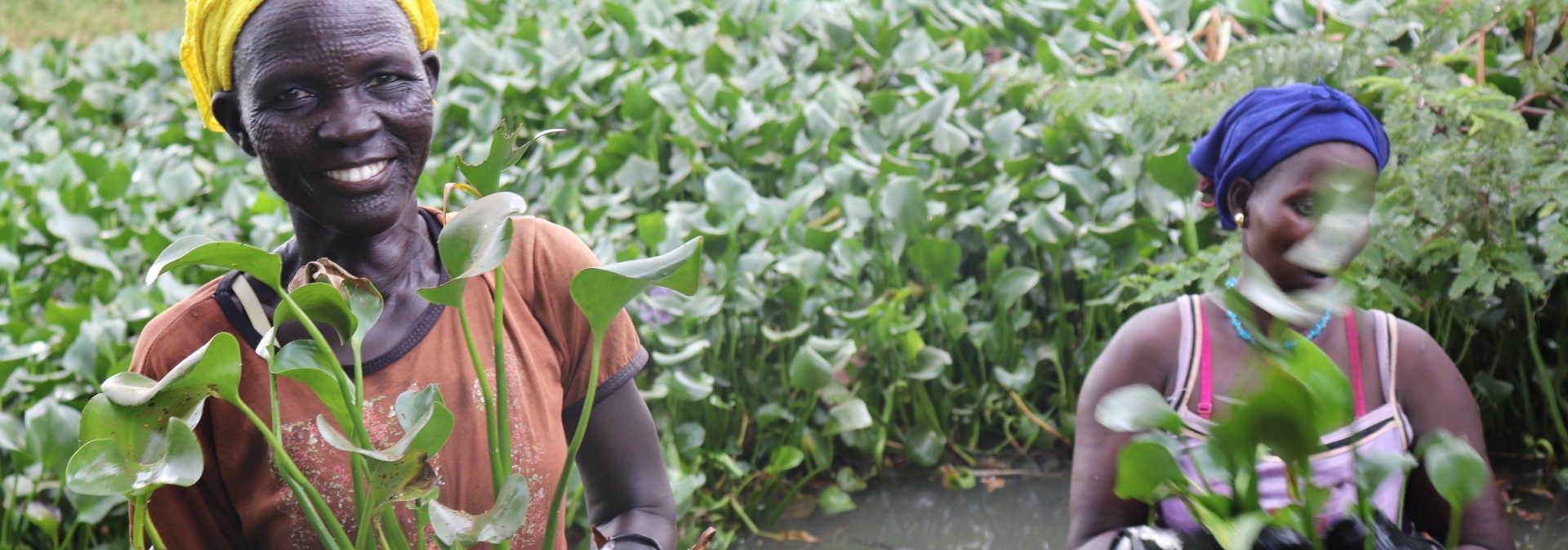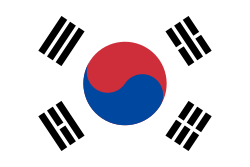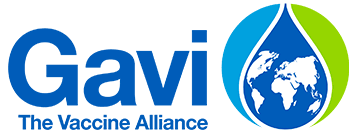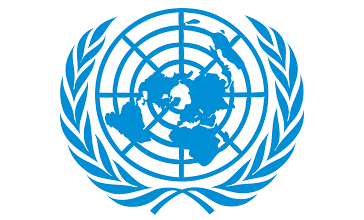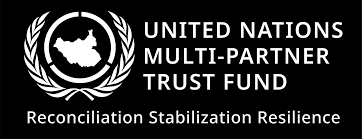South Sudan Crisis Response Plan 2023 - 2025
IOM Vision
IOM, working with partners, key stakeholders and communities, will continue to support people in vulnerable situations across South Sudan with essential life-saving assistance, while creating conducive environments for sustainable returns and recovery. IOM will adopt a community-driven approach to all programming, to facilitate transformative changes that address vulnerability and risks. Addressing these challenges means not only making a positive and lasting impact on the lives of South Sudanese affected by crises but also supporting the government in fulfilling the promises of the Revitalized Peace Agreement, creating a base of support for its continued efforts to address potential drivers for future crises.
Objective
Saving lives and protecting people on the move
|
Recognizing the protracted nature of the conflict and associated humanitarian crisis in the country and the continuous, and worsening shocks facing local populations, IOM foresees that humanitarian support will be needed for three population groups: (1) IDPs, both protracted and newly displaced populations; (2) IDPs and migrants who have returned and continue to face a variety of challenges; and (3) vulnerable host communities affected by disasters and/or conflict and in areas in which services are limited. IOM will continue to provide life-saving assistance in tandem with supporting self-reliance and mitigation across multiple sectors, including water, sanitation, and hygiene (WASH), health, NGOs coordination and camp management (CCCM), migration management and transition and recovery. Protection principles will be mainstreamed across interventions to ensure safety and dignity, avoid causing harm and guarantee meaningful access to assistance for all persons in need, without discrimination. This includes GBV risk mitigation as well as Disability Inclusion throughout the program cycle. Particular attention will be given to effective participation and empowerment of the community, ensuring that Complaint and Feedback Mechanisms (CFM) and other reporting mechanisms related to Prevention against Sexual Exploitation and Abuse (PSEA) and the Child Safeguarding Policy, are in place to prevent misconduct and guarantee accountability to the affected population, in line with the IOM AAP Framework. " |
IOM will build the capacity of government officials and support national NGOs (NGOs) and associations for persons with disabilities with technical support. Entities targeted will include the Relief and Rehabilitation Commission (RRC), Peace Corp Organization, Ministry of Gender, Child and Social Welfare, Ministry for Water Resources and irrigation, Active Youth Agency, and various organizations for persons with disabilities.
|
In 2023, IOM’s Camp Coordination and Camp Management team will:
|
|
For Direct Health Support, in 2023 IOM will:
|
|
When it comes to Humanitarian Border Management and assistance to citizens abroad, IOM will:
|
|
IOM will continue to provide standalone protection activities as well as strengthen protection mainstreaming, including gender-based violence (GBV) risk mitigation, prevention of sexual exploitation and abuse (PSEA) and disability inclusion across all programming. IOM will maintain close coordination with key protection partners, relevant clusters and technical working groups. Key activities will include:
|
IOM is the WASH Cluster State Focal Point (SFP) for Upper Nile, manages a part of the water, sanitation and hygiene (WASH) core pipeline and co-leads the Technical Working Groups on Humanitarian Development Nexus, Disaster Risk Reduction and WASH & Accountability to the Affected Population (AAP). IOM will continue to To provide integrated, safe, equitable and dignified access to cost-efficient, robust and climate-resilient WASH services to most vulnerable IDPs, host communities, and returnees.
IOM will also continue to provide WASH services in existing areas of operation and mobilize its emergency preparedness and response (EP&R) teams in order to rapidly restore service provision in response to crises (famine-like conditions, conflict-/flood related displacement) and prevent infectious diseases such as Hepatitis E virus, acute watery diarrhoea/cholera thus safeguarding and preventing public health risks.
With the escalation of hostilities, WASH infrastructure is projected to become more severely impacted in Sudan, resulting in a high number of people in need of lifesaving drinking water, as well as other WASH services.
Activities will include:
- Ensure provision of safe, dignified, expandable, cost-efficient and robust water, sanitation and hygiene services for most vulnerable people including conflict-affected and flood-affected IDPs and host communities, including population living in PoCs and IDP sites in Malakal, Bentiu, Wau, Twic, etc. A special focus will be exerted on reducing the likelihood of public health crisis by providing tailor-made flood-resilient services, and faecal sludge management and solid waste management systems in the intervention areas.
- Surge support to the national WASH Cluster by the timely mobilization of a WASH rapid response team across the country in order to rapidly restore critical life-saving WASH service provision, including emergency rehabilitation of water drinking supplies, disinfection and distribution of WASH NFIs with a special emphasis on soap and menstrual hygiene management items. GBV-related risks and concerns are taken into consideration in all programming;
- Ensure primary health facilities and schools in areas of return have minimum basic standards for WASH services and facilities, including latrines, water quality and quantity, drainage and waste management;
- Strengthen local economy and improve community resilience through cash-for-work for community members in the intervention areas through their engagement in the rehabilitation of WASH facilities and promote community engagement and ownership.
- Scale up assistance at border locations, providing lifesaving WASH services to the most vulnerable individuals in points of entry and transit centres to response to the Sudan crisis
|
In 2023, IOM's Mental Health and Psychosocial Support (MHPSS) team will:
|
|
IOM will continue to provide emergency shelter and NFI support across South Sudan, with the most appropriate modalities determined through comprehensive needs and market assessments, with special consideration to persons with special needs and other vulnerable groups throughout the project cycle, including:
|
|
IOM will provide assistance to survivors of human rights violations, including those arising from the conflict. Activities will include:
|
IOM will facilitate safe and dignified humanitarian assistance, including movement assistance to third-country nationals and returnees arriving from the Sudan crisis. Main activities will include:
- Provide humanitarian transportation to vulnerable new arrivals from the border points to IOM’s transit centres. Humanitarian assistance will seek to safeguard dignified and safe human mobility, ensuring physical well-being and focusing on the prevention and mitigation of protection, health and other physical risks.
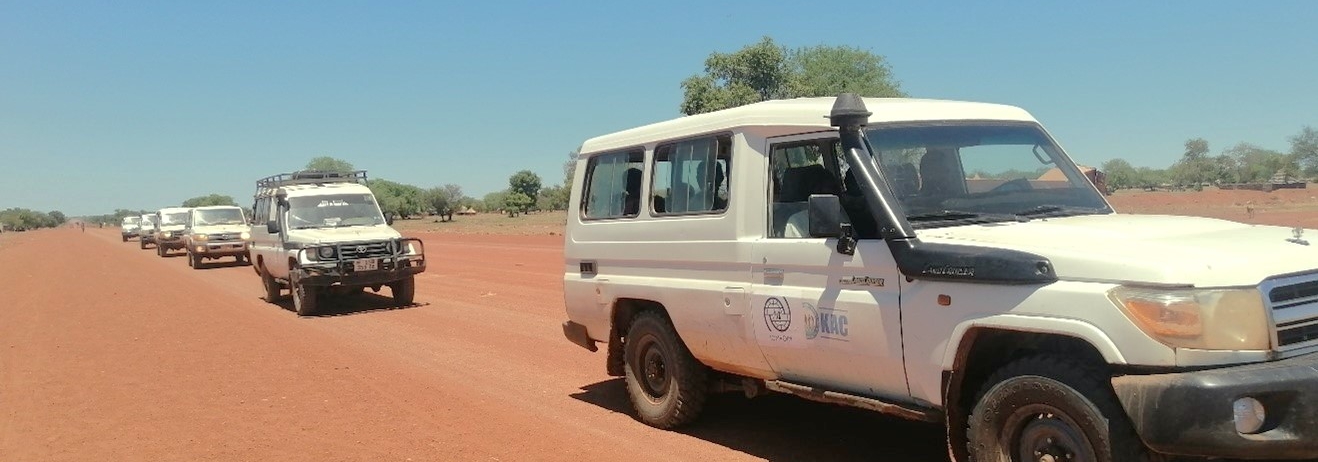
Objective
Driving solutions to displacement
|
IOM foresees that, in order to address the drivers and longer-term impacts of crisis and displacement, support will be needed for three population groups: (1) IDPs, both protracted and newly displaced populations, based on context-specific vulnerability analyses and emergency gaps analysis; (2) IDPs and migrants who have returned, who continue to face challenges in accessing services, livelihood opportunities, and housing, land, and property; and (3) vulnerable host communities in areas in which services are limited. Key beneficiaries will include vulnerable community members such as women, youths and children as well as community leaders, civil society, local authorities, and relevant ministries. Marginalized groups including women and youth have borne the brunt of continued shocks. The lives of South Sudanese women and girls continue to be marked by violence and discrimination, with high rates of gender-based violence persisting against the backdrop of the peace deal, worsened by the economic impact of conflict and natural disasters. Youth are also being excluded from meaningful participation and have few avenues for mobility or a sense of belonging. Violence and crime are one of the few ways that youth can access resources. IOM is committed to implementing needs-based programming to reach those that are most vulnerable. The targeting of beneficiaries will be based on protection concerns and context-specific vulnerability analyses. |
|
IOM will continue to design and deliver locally driven, development-principled initiatives that facilitate transformative change that addresses the drivers of vulnerability and risk, and mitigate further displacement, with a focus on access and provision of essential services, economic recovery, and local governance and social cohesion. Activities will include:
|
|
IOM will play a proactive role in advocating for and implementing durable solutions by bringing IDPs to the centre of the conversation, and involving them in the process to inform the solutions strategy. Activities will include:
|
|
In line with IOM's Manual on Community-Based Mental Health and Psychosocial Support (MHPSS) in Emergencies and Displacement, IOM will integrate MHPSS with conflict transformation and mediation activities, as well as within wider livelihood efforts. IOM will:
|
|
In 2023, IOM will:
|
|
When it comes to peacebuilding and peace preservation, in 2023 IOM will:
|
IOM’s WASH interventions will span across the humanitarian-development-peace nexus, providing a comprehensive and tailored package that responds to a range of needs (individual, community and institutional), across different settings (conflict-/ flood-affected, in responding to public health emergencies, within IDP camps, at the border, and in areas of return). IOM’s WASH interventions will provide nature-based, climate-resilient, resource-oriented, cost-efficient, durable, gender-sensitive and inclusive water, sanitation and hygiene services in transitional and post-crisis contexts through the systematic application of integrated water resources management, circularity, systems design, ecological sanitation and WASH market-based programming, in support of food security, climate resilience and livelihoods.
Key activities include:
- Ensure provision of nature-based, climate-resilient, resource-oriented, cost-efficient, durable, gender-sensitive and inclusive water, sanitation and hygiene services in transitional and post-crisis contexts through the systematic application of integrated water resources management, circularity, systems design, ecological sanitation and WASH market-based programming, in support of public health, food security, climate resilience and livelihoods. Gender-sensitivity and inclusiveness will be prioritized throughout all interventions.
- Operationalize cost-efficient and self-replicable water supply techniques with a special emphasis on manual drilling and small-scale solar pumps.
- Operationalize water supply interventions which focus beyond domestic water uses by giving prioritizing to integrated water resource management interventions. A particular focus will be exerted to the use of renewable water resources for pastoralists, small-scale farmers, and livelihood.
- Operationalize nature-based, climate-resilient and resource-efficient WASH services through the implementation of green infrastructure and multi-functional WASH systems. A particular focus on ecological sanitation and water harvesting techniques will be exerted.
- Strengthen self-sufficient WASH management mechanisms and governance systems to enable communities to better respond to their needs and endure future shocks.
- Strengthen market-based programming by supporting entrepreneurship and small-scale enterprise development, by working through or supporting local markets.
|
IOM will continue advancing national land legislation in conjunction with national ministries and parliamentarians, while simultaneously serving individual HLP needs at the grassroots level. IOM will:
|
Objective
Strengthen preparedness and reduce disaster risk
|
IOM will continue to work with the Ministry of Humanitarian Affairs and Disaster Management for policy development, operationalization of the National Disaster Risk Reduction Strategy, development of Disaster Risk Management manuals and supporting consultations on the Disaster Risk Management Bill. IOM will build the capacities of local government and communities prone to floods and other natural hazards to mitigate flood risks through community-based disaster management committees. IOM will continue to work with the Ministry of Water Resources and Irrigation (MWRI) to ensure that vulnerable communities benefit from WASH interventions that are scalable, sustainable, adaptable and resilient, and the Ministry of Environment and Forestry for strengthening Early Warning Systems. IOM will also continue to work closely with the Ministry of Health (MOH) to strengthen health systems to prevent, detect and respond to complex communicable disease outbreaks, such as COVID-19, cholera, measles, Ebola virus disease (EVD) and other health threats, as well as building capacity of health and social workers. |
|
IOM’s activities will focus on disaster risk reduction and preparedness, to enhance community resilience to enhance risk knowledge and coping mechanisms to meet the challenges of climate shocks, in particular, flooding in the Nile Basin with Jonglei, Upper Nile, Warrap and the Equatorias representing severe flood-prone areas. IOM will also enhance the effectiveness of disaster risk mitigation measures to mitigate displacement and food insecurity and inform and influence policymakers and the humanitarian community on disaster risk reduction. Activities will include:
IOM will also continue to work with stakeholders, government, civil societies, academic institutions, experts, and communities to generate a knowledge base to inform strategies for disaster risk reduction, mitigation and Response. Activities will include:
|
|
IOM will continue to coordinate with relevant stakeholders, including government, UN agencies and NGOs to maintain readiness to respond to crises and disasters. This will include sustaining ongoing capacity-building efforts aiming at national and local authorities, NGOs, and community leaders on disaster risk management, preparedness, and response, based on comprehensive and context-specific needs assessments, including through:
|
|
As co-lead for the points of entry technical working group, co-chair of the emergency responders mechanism, and a member of the health cluster strategic advisory group, GAVI/MOH Immunization Committee, IOM will continue to scale up efforts to ensure that health systems are strengthened to better prevent, detect and respond to complex communicable disease outbreaks and other public health threats, including through early warning alert response systems for surveillance and response to disease outbreaks. Activities will include:
|
|
Leveraging its role as the coordinator of the MHPSS TWG at the national level, IOM will continue to strengthen efforts at the community level, including capacity building of key actors, and integration of MHPSS considerations within wider humanitarian-development-peace efforts. Activities will include:
|
IOM will provide nature-based, cost-efficient, durable, community-based disaster-resilient water, sanitation and hygiene services through the systematic application of disaster preparedness, response and recovery approaches in support of climate and disaster risk resilience. Key activities are highlighted below.
- To provide nature-based, cost-efficient, durable, community-based disaster-resilient water, sanitation and hygiene services through the systematic application of disaster preparedness, response and recovery approaches in support of climate and disaster risk resilience.
- To operationalize community-based flood and drought-resilient programming by means of the construction of nature-based and resource-oriented infrastructure across South Sudan. A particular emphasis will be given to nature-based circular water resources and wastewater treatment systems.
- To operationalize community-based flood and drought-resilient programming by means of the rehabilitation of grey infrastructure (dykes, weirs, etc.) across South Sudan.
- Increase the disaster risk resilience of existing WASH services to floods and droughts by means of tailor-made upgrades. A particular emphasis will be given to high-impact, cost-efficient and durable interventions.
- Increase the understanding of the effects of WASH interventions across the entire crisis life cycle on the available natural resources. A particular emphasis will be exerted on the operationalization of integrated water resources assessment at watershed level and the analysis of the environmental impact of WASH services in the intervention areas.
Objective
Contribute to an evidence-based and efficient crisis response system
|
IOM will target 183 partner organizations, including 105 national NGOs, 68 international NGOs and 10 UN organizations funds and programmes, with the provision of information on the number and geographic distribution of IDPs and returnees, mixed migration trends, infrastructural and sectoral gaps and the evolving needs of crisis-affected populations to enable better planning. IOM will also continue to promote access to multisectoral humanitarian services for vulnerable communities through the provision and management of the core WASH and S-NFI pipelines and support to the logistics cluster for efficient and economic transportation of items, as well as the establishment and management of humanitarian hubs and disbursement of funds through the rapid response mechanism. |
|
IOM will leverage a countrywide network of over 6,500 key informants and close to 700 local enumerators while ensuring equal representation of males and females within the data collection teams as well as key informants, to provide timely information. IOM will:
|
|
IOM will continue to provide cost-effective, strategic and timely support for frontline actors across South Sudan. Activities will include:
|
South Sudan
The map used here is for illustration purposes only. Names and boundaries do not imply official endorsement or acceptance by IOM.
Figures are as of 31 December 2023. For more details of IOM's operational capacity in country, please see the IOM Capacity section.

